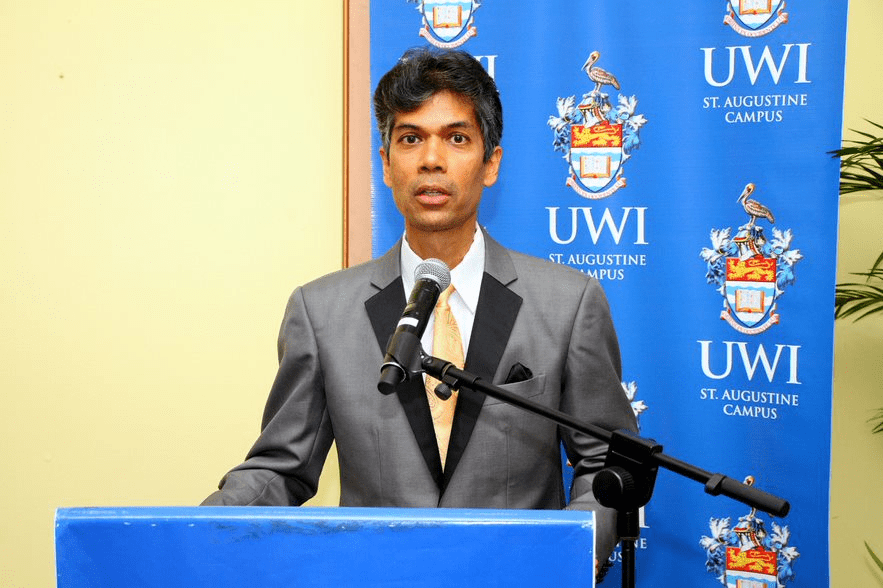EVERY year for World AIDS Day on December 1, the public is bombarded by advertisements, documentaries and articles on AIDS.
Some are shocking whilst others offer hope. There would be updated reports on medical advances as cheaper anti-retroviral drugs are developed to prolong the life span of persons inflicted with the dreaded ailment.
AIDS was first reported in 1981 and has since taken a devastating toll throughout the world. Millions of AIDS-infected patients await a certain death but even more painful is the stigma and discrimination as they are shunned by relatives and friends. In developing countries, being diagnosed as HIV-positive or with AIDS is a terrifying death sentence. Indeed, medicine is expensive, insurance companies are unreliable and medical institutions rarely have the relevant staff and facilities. The tragedy is that some infected persons are either unaware of their predicament or live in a state of denial.
Most people associate HIV and AIDS with unprotected, promiscuous behaviour. Whilst it is indeed a sexually transmitted disease, it can be spread from a pregnant mother to her unborn child, use of contaminated needles or through blood transfusions. Some of the frightening symptoms include night sweats, fever, weight loss, swollen lymph glands and skin rashes. Most of the persons living with HIV will develop full-blown AIDS during their life, usually an average of ten years or more after being infected.
In the Caribbean, AIDS is one of the major diseases affecting adults especially those in the age group 24 to 49 years. As a result of advertising, many are deceived into believing that the condom is 100 percent safe for preventing the transmission of the AIDS virus.
However, there are instances of leakage and bursting of this contraceptive and thus this is no guarantee of safety. The AIDS epidemic cannot be sufficiently emphasized. Tens of thousands of children are helpless orphans as their parents have died from the dreaded disease. Superstition and ignorance of HIV and AIDS have resulted in this world losing its most precious resources. There were promising signs such as the revelation by the US National Institutes of Health, in May 2011, that anti-retroviral drugs (ARVs) made HIV less infectious. In June 2011, UN Secretary-General at an AIDS conference at the headquarters of the United Nations said “today we are gathered to end AIDS.” More than a decade later, we can ask ourselves- did we end AIDS?
The issue of sexual freedom is one of the troubling questions among this generation of teenagers and young adults. At what age should children be exposed to sex education at schools? Parents cannot continue pretending that their children are not sexually active at school. Sex education in homes and schools should no longer be a taboo subject. It is now obvious that AIDS is no longer a taboo subject. The media is partly guilty of encouraging this AIDS epidemic. The many soap operas, movies and certain half hour comedies portray men and women who engage in casual sex without any thought of disease or long-term commitment.
Some persons infected with HIV/AIDS are too afraid and ashamed of going to the hospitals and doctors for advice and treatment. Instead they resort to the quacks and untrained persons who offer homemade potions (known in the Caribbean as ‘bush medicine’), or questionable herbal drugs. Obviously, these so called antidotes and remedies produce no cures or beneficial effects, and only offer a false hope of recovery and sometimes worsen the symptoms.
What is the solution? Who can assist? Past and present celebrities as Elizabeth Taylor, Victoria Beckham, Rihanna and John Legend had made significant contributions in HIV/AIDS prevention and treatment. Likewise, the American Foundation for AIDS Research, Bill & Melinda Gates Foundation and Elton John AIDS Foundation have also done amazing work. There are also groups as ‘Born Free Africa’, which seeks to reduce the Prevention of Mother to Child Transmission (PMTCT). Maybe governments and multinational corporations could contribute more, and possibly the billions of dollars spent on the entertainment industry and wars could be directed to medical research and HIV/AIDS awareness programs.
Is this too much to ask?
Dr Jerome Teelucksingh is an activist. He initiated the inaugural observances of International Day for the Elimination of Violence Against Men and Boys (January 31) and World Day of the Boy Child (May 16). He has made academic presentations at tertiary institutions including Harvard University and Oxford University.
See other articles by Dr Jerome Teelucksingh on AZP News:
An Indo-Trinidadian Doctor in Toronto
Canadian and Missionaries and Education
Evolution of Education and Presbyterianism
An Early History of Naparima College
The Glorious City of Port of Spain
Have we Forgotten George Padmore
Nobody Cares about Underachievement
Can we Eradicate Underachievement?
A Quiet Pandemic: Male Underachievement
The Blackest Thing in Slavery wasn’t Slaves
The Importance of Emancipation Day
Tobago’s Working Class in the 1920s, 1930s
Are Humble Caring Fathers Champions?
Influencing West Indian Masculinity
Defining Caribbean Masculinity
Is Monogamy Encouraged in the Caribbean
Naps Girls: From Humble Beginnings to Excellence
US Media Creates Cultural Dependency in the Caribbean
Bloodless Revolution to Save Lives in Developing Countries
The Need for a Social and Moral Revolution
The Law of Supply and Demand in Developing Countries
End the Dependency for Developing Countries
T&T Carnival and the Emperor’s New Clothes
The Influence of Labour on Caribbean Integration
The illusion of political Unity
Presbyterians in Trinidad: Humble Missionaries, Local Workers
Religious Plurality: Curse or Blessing
Caribbean Youth Need Optimism, Patriotism
Rethinking Identities in Caribbean, Latin America
November 19: All Inclusive International Men’s Day
Should International Agencies be Blamed for Unemployment
A Need to Observe Word Unemployment Day
An Ideology for the Trade Union Movement
The Man who Couldn’t be Prime Minister
Social Outburst vs Social Revolution
Challenges of the Men’s Movement
If George Floyd was Denied Parole
The Meaning of Indian Arrival Day in T&T
International Men’s Day – A Way of Life
Wounds that cause school violence
May Day: A Time for Solidarity, Strength
Who Coined the Term ‘Black Power’
The illusion of political Unity
Presbyterians in Trinidad: Humble Missionaries, Local Workers
Religious Plurality: Curse or Blessing
Caribbean Youth Need Optimism, Patriotism
Rethinking Identities in Caribbean, Latin America
November 19: All Inclusive International Men’s Day
Should International Agencies be Blamed for Unemployment
A Need to Observe Word Unemployment Day
An Ideology for the Trade Union Movement
The Man who Couldn’t be Prime Minister
Social Outburst vs Social Revolution
Challenges of the Men’s Movement
If George Floyd was Denied Parole
The Meaning of Indian Arrival Day in T&T
International Men’s Day – A Way of Life
Wounds that cause school violence
May Day: A Time for Solidarity, Strength
Who Coined the Term ‘Black Power’
![]()














